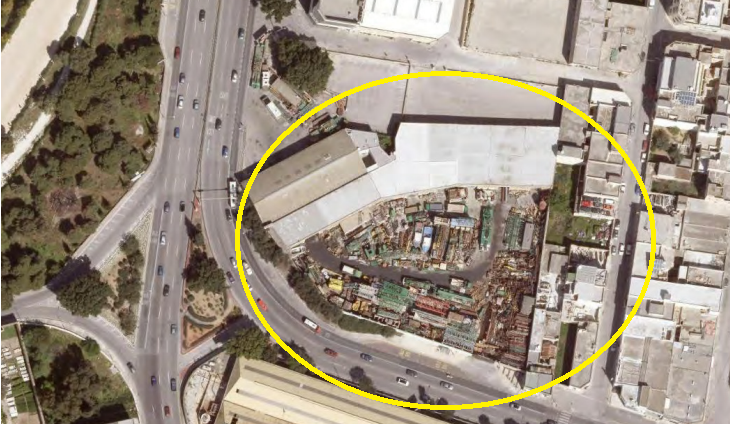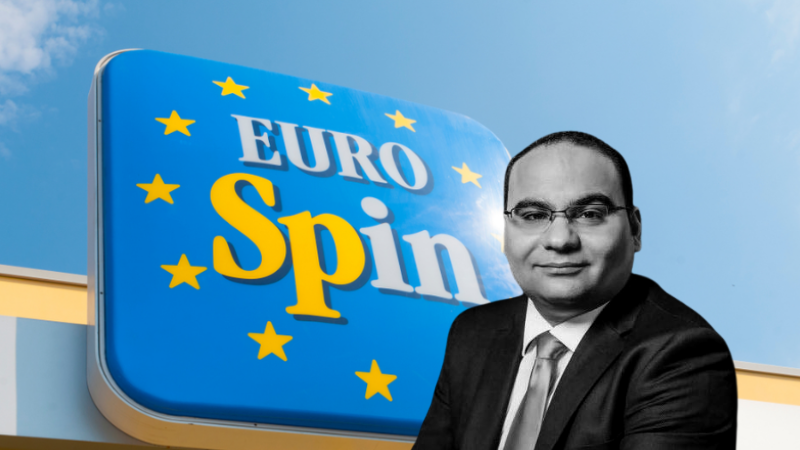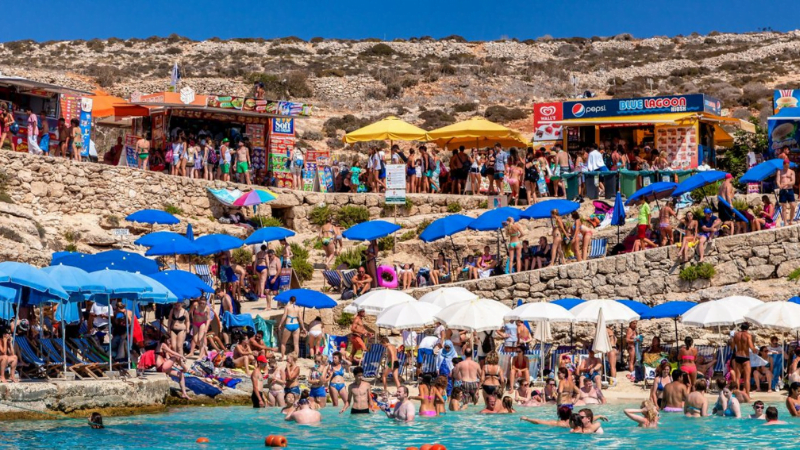Local supermarket owners are demanding a prompt solution to the unequal tax treatment of foreign vs local businesses as they brace themselves for the arrival next year of a major new competitor – Italy’s largest discount food group, Eurospin.
The Shift is informed that following an application by the Sicilian branch of the Italian giant to the Planning Authority, Eurospin will be taking over the Bezzina industrial yacht yard in Marsa and transforming it into its first mega supermarket.
While the Planning Authority is expected to approve this application in a few weeks’ time, as the Environment and Resources Authority has already given it the green light, supermarket industry sources told The Shift that Eurospin will be “hitting Malta by storm as they plan to open 12 stores all over the island.”

The former boatyard area earmarked for the new Eurospin development
Local large supermarket owners, who have already experienced the brunt of cut-throat competition after the arrival of Lidl, complained that they can’t face further knocks if the current tax regime continues to discriminate against them.
Currently, Malta’s tax regime favours foreign-owned businesses as they are able to claim back 30% of their tax dues, effectively paying just 5% tax on their profits. On the other hand, Maltese businesses pay the full 35% of their declared profit.
While Malta is facing international pressure to change its tax regime, which in the last two decades has led to the flourishing of Malta’s economy, particularly in gaming and financial services, it is still resisting sudden changes.
On Saturday, Finance Minister Clyde Caruana announced that a new tax regime would come into force in 2025, in a clear response to pressure from the EU and scrutiny from other international watchdog organisations involved in the decision to greylist Malta.
However, local supermarket operators want something to be done “now” as they think it will be too late in 2025.
“Eurospin is a giant with some €7 billion turnover. We already cannot compete with it even if we were on an equal footing. You can just imagine how we can survive this when they pay 30% less than us,” the owner of a local chain said.
“We were already forced to join our local competitors to create stronger purchasing power due to the Lidl competition,” another owner said.
While supermarket operators are worried about Eurospin’s Malta venture, the chain’s arrival in Malta may mean good news for consumers who are facing unprecedented price increases, as confirmed by a recent Caritas report.
The latest inflation figures show an 8% increase in food prices during the first months of this year.
This increase, caused mainly by international circumstances, including the pandemic and the ongoing Ukrainian conflict, is expected to continue for the coming months, if not years, forcing more fierce competition among local supermarket chains in trying to give consumers a better choice at lower prices.
The Malta Chamber of SMEs (GRTU), which represents retail operators, has spent years lobbying for the creation of a level playing field. Yet, so far, no concrete action has been taken.
The tax issue is a double-edged sword. Tax practitioners insist that a change in the system might be beneficial for local retail but disastrous for the economy. Practioners told The Shift that Malta has attracted international business and expanded its economy thanks to the tax regime and EU membership. “A different tax system might remove its current attractiveness, and everyone will suffer.”













Any enterprise working for the local market, foreign or local, should pay the same tax rate whether 5% or 35%. The playing field should be level. And the same goes for those working for foreign markets.
Gahans get where they voted for.
The tax issue is, in my opinion, a ‘catch 22’ situation. Increasing our tax rate to align with that of other countries, may lose the attraction of our low tax jurisdiction, which may not only have a negative impact on our financial services sector, but will definitely have a very wide ripple effect on the company services provider sector, banking, construction and real estate, hospitality and travel sector.
This has to also be viewed in the light of not having created over the last 8 years, reserve niche sectors to neutralise the economic impact, while also having lost control of our international reputation as a result of a decadence in the rule of law, impunity, a big lax in good governance and an ease for criminal activity in money laundering, illegal betting and international commodity smugglimg. In fact, in my opinion, this is one major reason which has drawn focus on our tax regime, as a tool to justifyably cut us down to size and control our underground economy with international implications.
With a harmonised tax of a suggested 15%, the big businesses may economically be still enticed to set up their operations from Malta, however we may have lost the ‘living aspect’ for qualified expatriate employees with families, as a result of a decadence in our environment and a lack of open space. Also, the unavailability of highly qualified human resources as a result of additional opportunities arising overseas and with a non-insular lifestyle, our home grown resources are becoming highly inclined to embark on their career overseas.
On the other hand, if we somehow veto the tax harmonisation, and other countries will start taxing companies an extra percentage to align them with their rates, the advantage of staying here or coming here, will be lost.
I must now say something about my opinion of the demographic illogicality of the ‘unexplainable’ proliferation of massive retail groups setting up in Malta and opening a multiple of retail supermarkets around the island, in an already highly competitive market, where the products on sale are practically all imported, which in itself renders moneylaundering easier.
The retail trade is one of the commercial sectors highlighted as high risk, in activities chosen as a tool for money laundering. The policy of multiple outlets, is also a tool within a tool to size down the attention of regulatory authorities when indulging in such activity.
FOOD FOR THOUGHT.
The final 5% tax following rebates has paced the way to money laundering. A significant number of foreign businesses set up in Malta are used as a front to launder money. They go by the rules, registered employees, declare all sales, actually more that they actually sell, and pay 5% tax on net profit. Paying a few tens of thousands in tax is a fraction of the millions they launder in this manner.
Simple, form a foreign company, register it in another country then this company invests in Malta. Simple or not?
Is the tax regime the reason why PAVI and PAMA have prices so high it’s no better than going to the nearest small grocer/convenience shop?